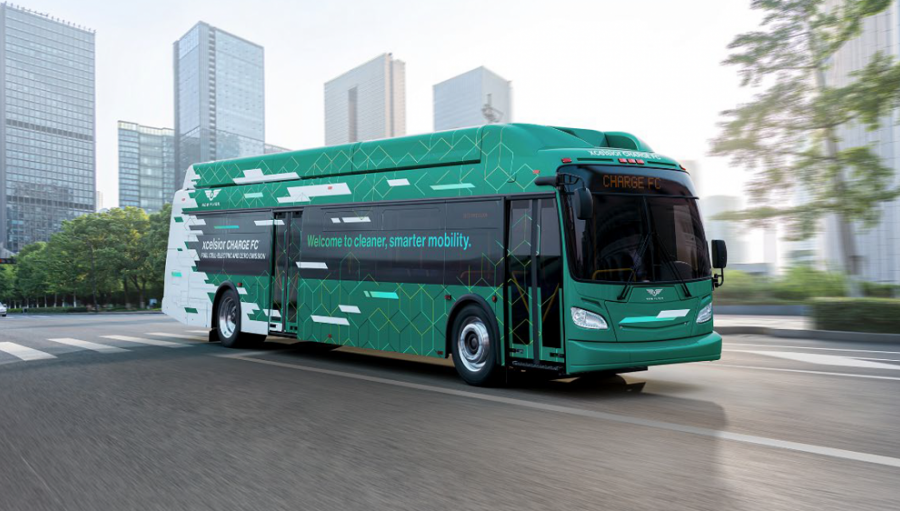Bus provider from the United States, New Flyer, on 8/9/2022 launched the latest generation Xcelsior Charge FC fuel cell bus model, with a range of more than 596 km. The bus is claimed to be rechargeable in 6-20 minutes depending on model and operating conditions, and does not require overnight plug-in recharging.
With fuel cell modules from Ballard Power Systems and a Siemens ELFA 3 driveline, this model follows the Xcelsior Charge H2 (launched in 2019) and is available in two variants 12 m and 18 m lengths, both models complying with the Federal Transit Administration’s Altoona testing program. , Pennsylvania.
These buses use hydrogen and fuel cell technology that generate electricity and charge batteries for long distances without emissions, saving 85-175 tons of gas per year from exhaust emissions compared to traditional diesel buses.
The bus is built on the Xcelsior platform with more than 16,000 pre-existing buses, the battery-electric and fuel-cell models of the New Flyer have exceeded more than 25 million km of electric vehicle service.
The battery pack developed by New Flyer uses a waterproof cover design that is lighter and easier to maintain, reducing the number of parts by up to 90%.
Interestingly, still as presented by the New Flyer, the sleek design allows technicians to simply plug in or unplug individual battery packs significantly reducing bus downtime and allowing for easy replacement.
The new variant FCmove-HD+ fuel cell power module from Ballard Power Systems introduces a more compact and robust design with reduced life cycle costs achieved through lower maintenance requirements, higher reliability and fewer parts.
Integrated body design accommodates all subcomponents in one housing; smaller, lighter and uses 50% fewer parts, making it easier to service and maintain. The New Flyer offers more than 97% fuel cell power availability while in operation, and a wider operating range in a variety of climates.
“More cities are making commitments to 100% zero-emission fleets and Xcelsior CHARGE FC provides the ideal complement to battery-electric buses for agencies looking to integrate the reliable long-haul performance of hydrogen fuel cell electric buses,” said Vice President of Sales and Marketing. Public Sector, New Leaflet and MCI, Jennifer McNeill, quoted from the Sustainable-Bus page today, Friday 9/9/2022.
Jennifer also said, “Xcelsior CHARGE FC can advance the company’s efforts to continue to drive the adoption of zero emission mobility with a safe, scalable and efficient approach to manufacturing processes. “In turn, we are streamlining training for our production teams and those from transit agencies across North America to continue to support retraining, skills upgrading, and workforce development to ensure a successful zero emissions deployment,” he said.
US Government need more 100,000 charging stations to support the widespread use of EVs
